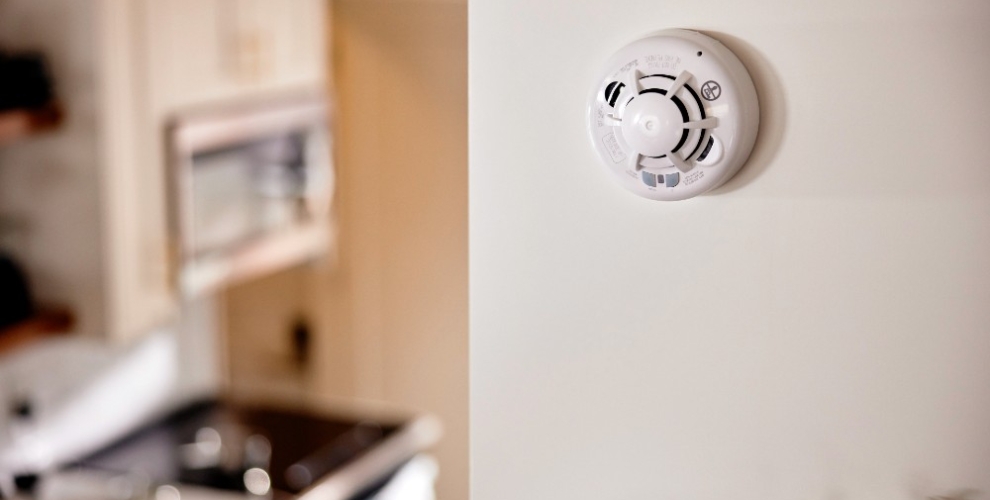Key takeaways
- Over 1 in 10 homeowners will upgrade their home security in 2023 by integrating AI features.
- 3 in 8 homeowners are on board with integrating AI into home security systems.
- 60% of homeowners believe AI-integrated home security systems are vulnerable to hacking.
- 1 in 6 homeowners are against facial recognition in home security systems.
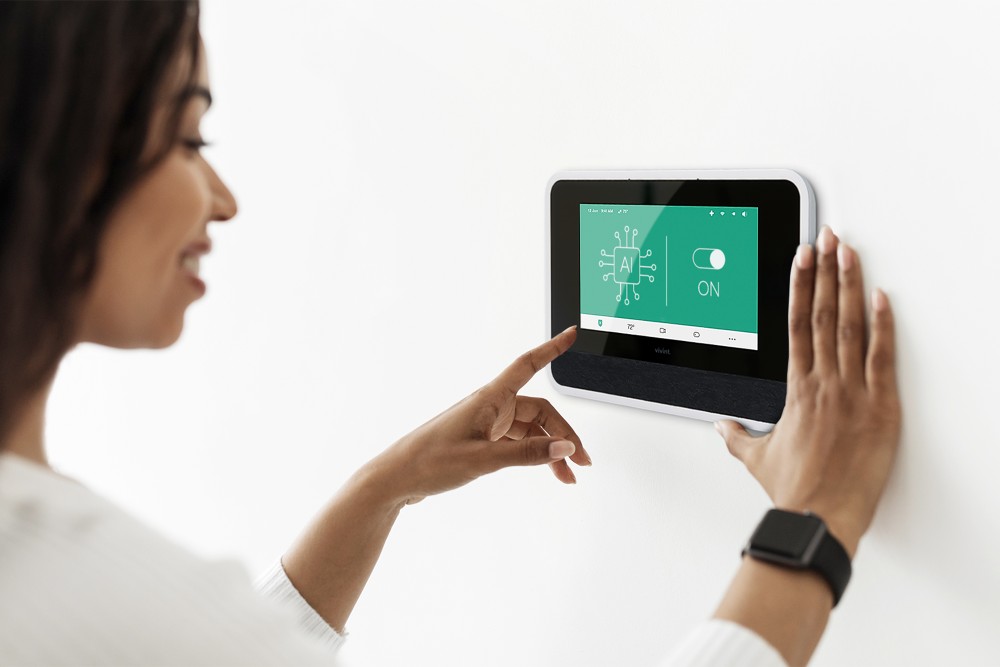
Securing your home with AI
Integrating Artificial Intelligence (AI) into home security systems is becoming increasingly popular. But is everyone on board with adopting this new technology? We surveyed over 1,000 Americans to find out. Let’s explore what we uncovered and learn more about how homeowners across America feel about AI-enhanced home security.
Unveiling perceptions: AI in home security
Despite AI being a hot topic in the media, many homeowners are still unsure about using it to help protect their homes. Our data revealed some fascinating insights regarding AI in home security systems.
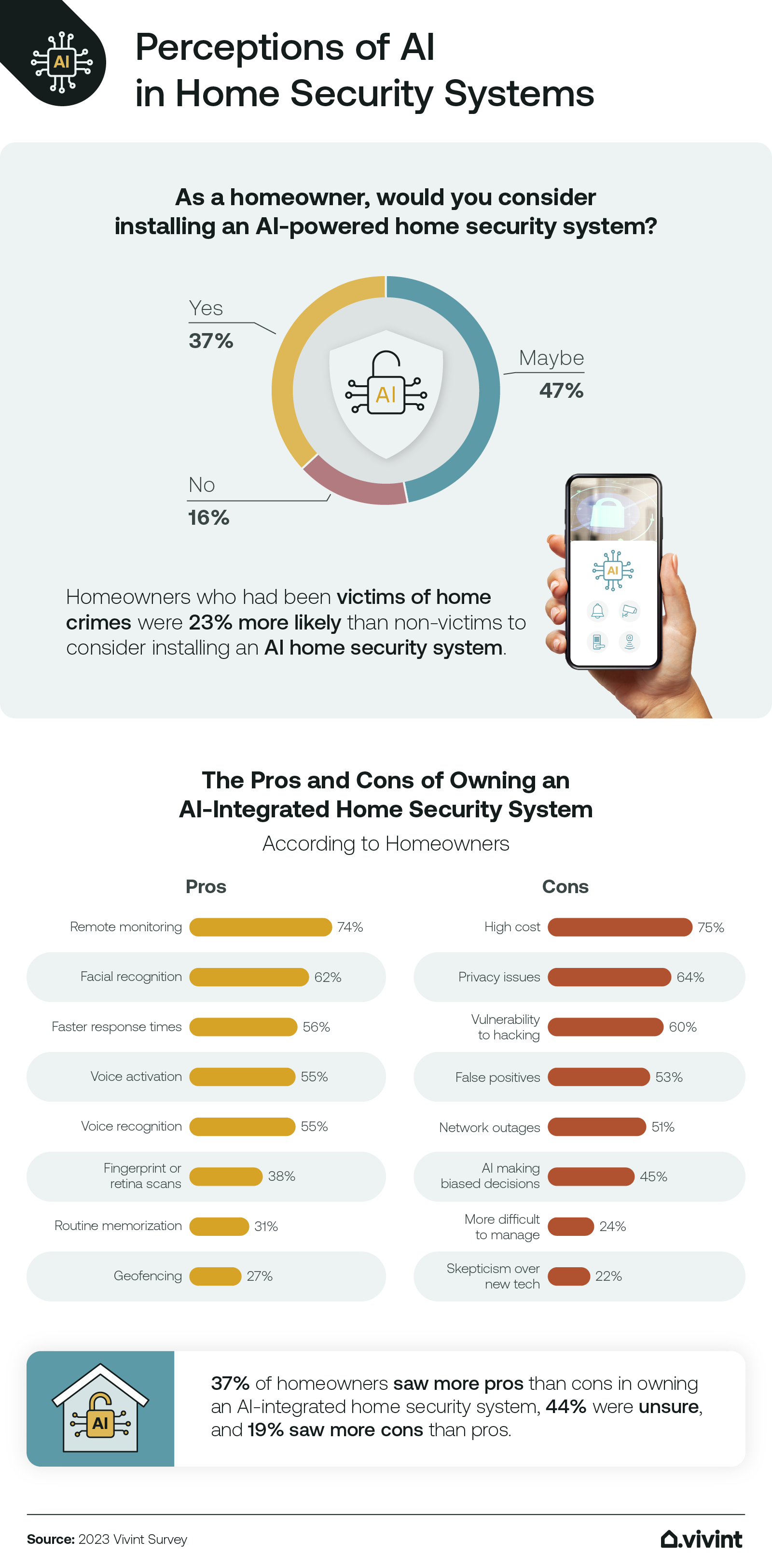
Of those surveyed, 37% said they would definitely consider installing an AI-powered home security system, 47% were unsure, and 16% flat out said no. Americans who had experienced home crimes were 23% more likely to consider AI in security systems. We saw similar responses when we asked homeowners whether the benefits of owning an AI-integrated home security system outweighed the drawbacks.
Geographically, homeowners in the West were more open to AI-integrated home security systems (42%), while those in the Midwest were least open to the idea (28%). This could be related to each region’s population density and crime rates. Younger homeowners (Gen Z and millennials) were 29% more likely to consider installing an AI-powered home security system than other generations.
While it’s clear that AI has the potential to revolutionize home security, it’s also clear that current attitudes towards AI-integrated home security systems vary depending on a person’s age, location, and experience with crime. Educating homeowners on the potential benefits of AI, such as improved accuracy and response times, could help foster more positive attitudes toward integrating this technology.
Enhancing home security with AI
Enhancing home security with AI is a real possibility, as it could provide homeowners with an extra layer of security that traditional systems can’t. Among those surveyed, 40% reported owning a home security system, with homeowners 78% more likely than renters to own one. Let’s see how many are ready for an upgrade.
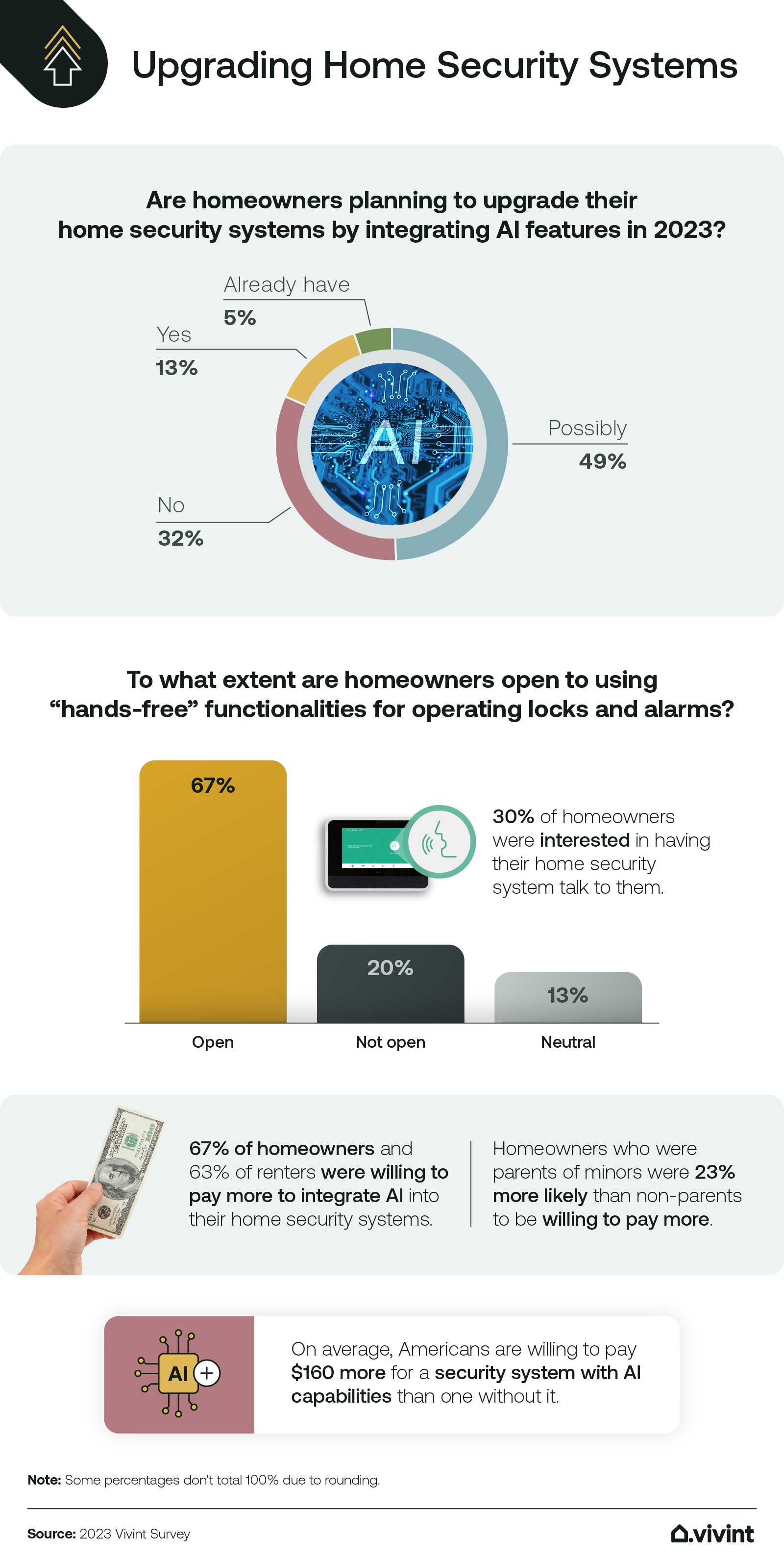
Many Americans seem open to incorporating AI into their home security system and are willing to pay for the added protection and peace of mind that AI features provide. Our survey showed that the majority of Americans (67% of homeowners and 63% of renters) were willing to pay more to integrate AI into their home security system. Also, homeowners with minors were more likely than those without to be willing to pay more for an upgrade. Overall, Americans are on board with paying an average of $160 more for a security system with AI capabilities compared to one without it.
We also observed differences between the generations, with the youngest American adults standing out. Younger generations (Gen Z and millennials) were 23% more willing to pay a higher premium for AI enhancements than other generations.
Debate over home security features
Opinions vary regarding the best features of AI-integrated home security systems. Here’s what homeowners had to say about them.
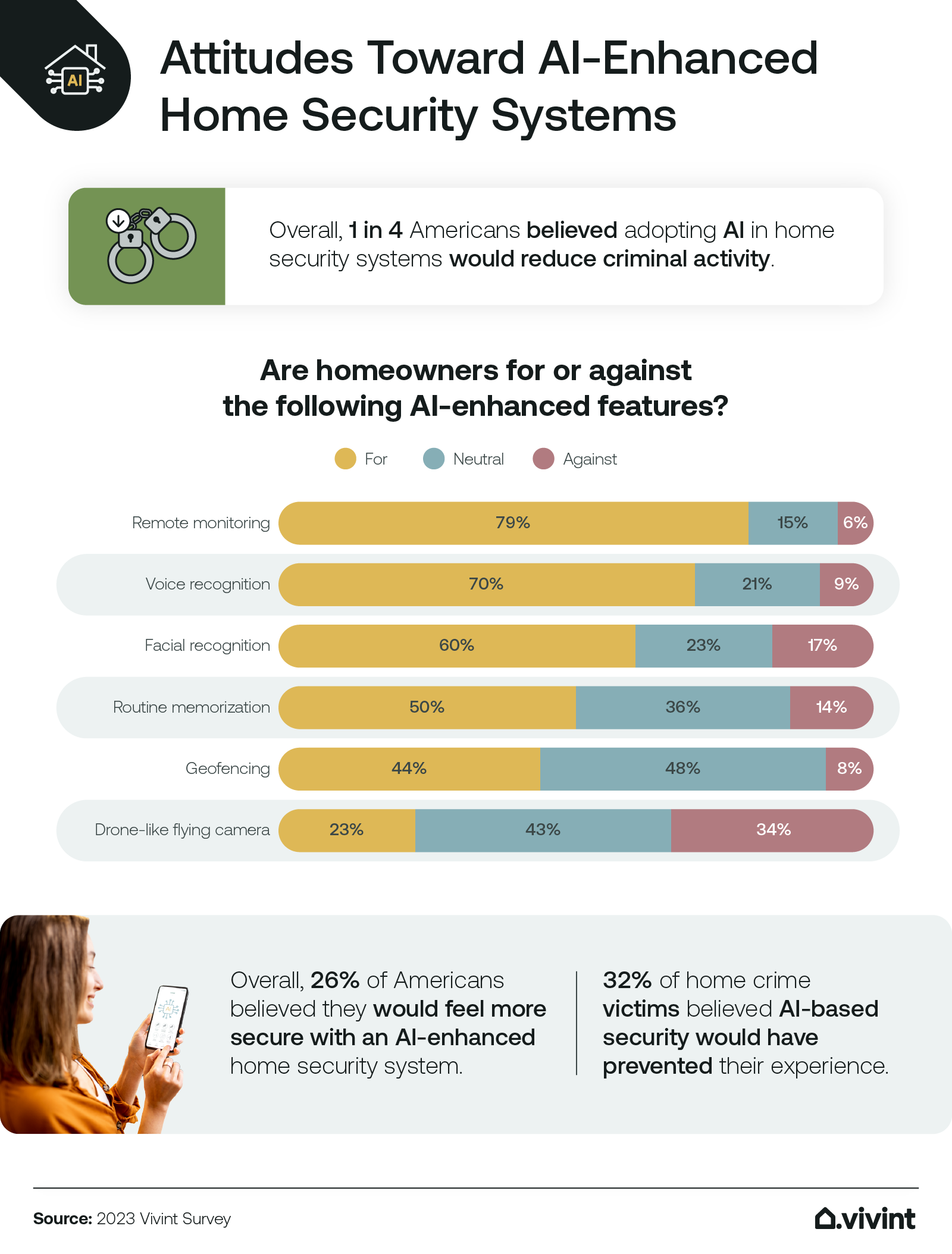
Our survey revealed that 26% of Americans believed they would feel more secure with an AI-enhanced home security system, and 32% of victims of home crime felt that AI-based security could have prevented their experience. In addition, one in four Americans believed that adopting AI-driven home security systems would reduce the rate of criminal activity.
But are these advanced security features protection or an invasion of privacy? Homeowners and renters had differing opinions, as shown below.
Homeowners
- Protection of privacy: 54%.
- Invasion of privacy: 46%.
Renters
- Protection of privacy: 48%.
- Invasion of privacy: 52%.
The debate over the features of AI-integrated home security systems is ongoing; further research could help us better understand this technology’s potential pros and cons.
Insights from ChatGPT
As AI-integrated home security systems continue to become more popular and advanced, it’s important to consider how this technology will impact the future of home security. We asked ChatGPT, an AI-enabled chatbot, to provide insights.
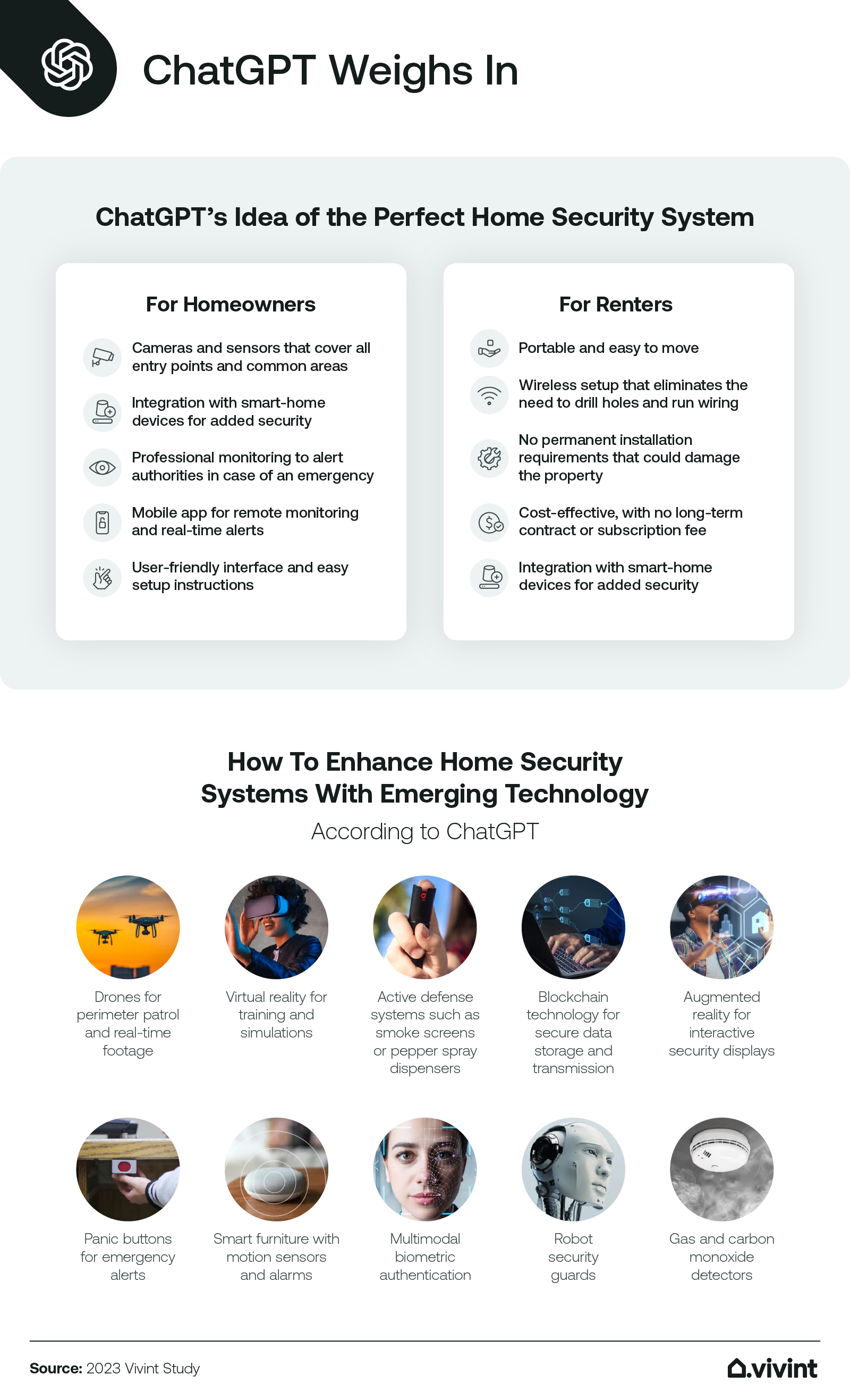
ChatGPT suggested that the perfect home security system should integrate with a homeowner’s existing smart-home devices to provide even greater protection. It also recommended professional monitoring, sensors and cameras that cover entry points and common areas, and an AI-driven system that can recognize patterns to detect potential threats.
For renters, ChatGPT suggested that the perfect home security system should be wireless, not require permanent installation, and be cost-effective with no long-term contracts or subscription fees. It also recommended integration with existing smart-home devices for added convenience and security.
ChatGPT also shared some emerging technologies that could potentially enhance home security systems even further, such as:
- Drones for perimeter patrol and real-time footage.
- Virtual reality for training and simulations.
- Active defense systems.
We also asked ChatGPT to provide advice on how to integrate AI effectively into home security systems. Its tips included the following:
- Checking for clear data privacy policies from your security system provider.
- Using encrypted data.
- Considering local processing.
- Having opt-in features.
- Minimizing data collection.
- Receiving regular updates.
These insights from ChatGPT shed light on the potential of home security systems and how they could evolve to better protect homes and their occupants. With the right knowledge and resources, AI-integrated home security systems can become even more reliable, secure, and beneficial to homeowners and renters alike.
AI-powered smart homes: the future of home security
As AI-integrated home security systems become more accessible, reliable, and increasingly sophisticated, it’s important to consider this technology’s potential benefits and drawbacks. While homeowners and renters have different opinions on privacy, AI-integrated home security systems can still benefit both parties. With the right resources and data privacy policies in place, AI-integrated home security systems can continue to evolve and become more advanced in protecting homes and their inhabitants.


